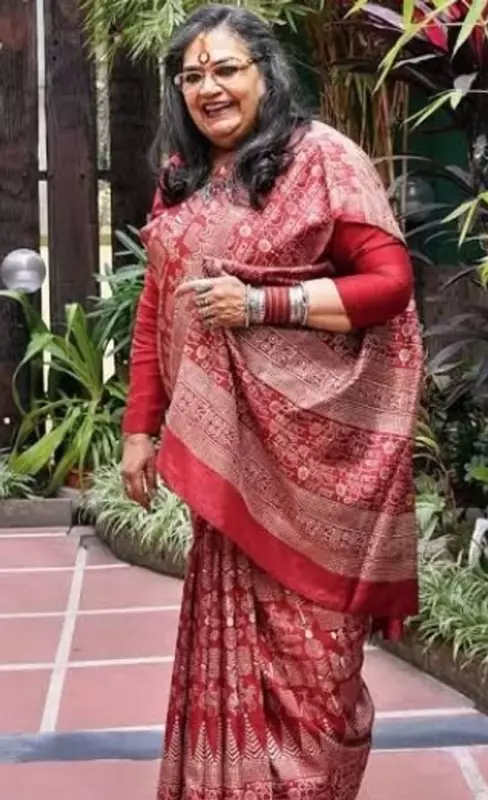
In a fascinating revelation that sheds light on Bollywood's musical history, legendary singer Usha Uthup recently shared how she became the distinctive voice for what the industry considered "bad girls" in films, while the legendary Lata Mangeshkar and Asha Bhosle predominantly sang for the "good girls." This unique positioning created her iconic niche in Indian cinema that continues to resonate with audiences today.
The Unconventional Voice in Bollywood
Usha Uthup, with her deep, husky voice and unconventional style, broke the mold in an industry dominated by classical and high-pitched female vocals. During a recent interview, the 75-year-old singing sensation reflected on how music directors naturally gravitated toward her distinctive voice for characters that defied traditional norms. "The good girls got Lata ji and Asha, the bad girls got me," Uthup stated with characteristic humor and wisdom.
This categorization wasn't something Uthup resisted; rather, she embraced it as her unique strength. While Lata Mangeshkar's crystalline voice became synonymous with the virtuous, traditional heroine, and Asha Bhosle's versatility covered playful and Westernized characters, Usha Uthup's earthy, powerful vocals became the perfect match for bold, rebellious women who challenged societal expectations.
Creating an Unforgettable Legacy
Uthup's journey in the music industry began in the late 1960s, and she quickly established herself as a force to be reckoned with. Her breakthrough Hindi film song "One Two Cha Cha" from Shalimar (1978) showcased her unique style and made the nation sit up and take notice. Unlike many playback singers who came from classical backgrounds, Uthup brought a fresh, contemporary sound that blended Indian sensibilities with international influences.
The singer, known for her trademark kantha (traditional Bengali embroidered quilts) and large bindi, never compromised on her unique identity. She performed in various languages including Hindi, English, Bengali, and other regional languages, building a pan-Indian appeal that transcended linguistic barriers. Her most memorable songs include "Rambha Ho" from Armaan, "Koi Yahan Aha" from Disco Dancer, and numerous other hits that remain popular across generations.
Breaking Barriers and Inspiring Generations
What's particularly remarkable about Usha Uthup's story is how she turned what could have been a limitation into her greatest strength. Being categorized as the "bad girl" singer didn't restrict her; instead, it allowed her to create a distinctive space that no other artist could occupy. Her voice became associated with strong, independent female characters who were unafraid to be different.
Today, at 75, Usha Uthup continues to perform with the same energy and passion that defined her early career. She has received numerous awards and recognition, including the Padma Shri in 2011, acknowledging her contributions to Indian music. More importantly, she has inspired countless young artists to embrace their uniqueness rather than conform to established norms.
Her story serves as a powerful reminder that success often comes from recognizing and celebrating what makes us different. In an industry that often pressured artists to fit into predefined boxes, Usha Uthup proudly created her own category and in doing so, gave voice to characters that reflected the changing aspirations of Indian women.





